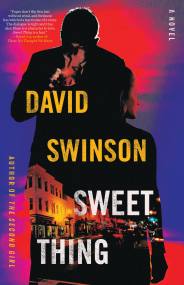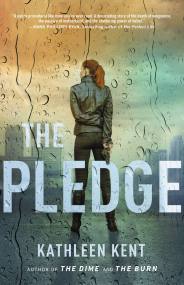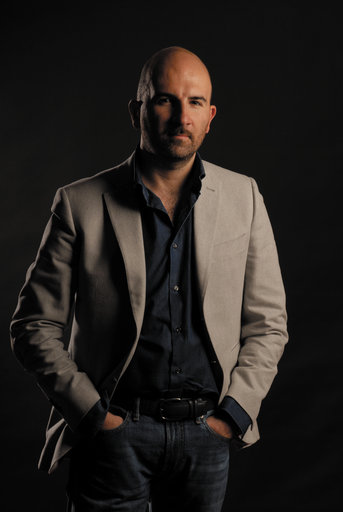By clicking “Accept,” you agree to the use of cookies and similar technologies on your device as set forth in our Cookie Policy and our Privacy Policy. Please note that certain cookies are essential for this website to function properly and do not require user consent to be deployed.
The Lost Girls of Rome
Contributors
Formats and Prices
- On Sale
- Nov 19, 2013
- Page Count
- 432 pages
- Publisher
- Mulholland Books
- ISBN-13
- 9780316246798
Price
$26.00Price
$29.00 CADFormat
Format:
Hardcover $26.00 $29.00 CADThis item is a preorder. Your payment method will be charged immediately, and the product is expected to ship on or around November 19, 2013. This date is subject to change due to shipping delays beyond our control.
Buy from Other Retailers:
A grieving young widow, seeking answers to her husband’s death, becomes entangled in an investigation steeped in the darkest mysteries of Rome.
Sandra Vega, a forensic analyst with the Roman police department, mourns deeply for a marriage that ended too soon. A few months ago, in the dead of night, her husband, an up-and-coming journalist, plunged to his death at the top of a high-rise construction site. The police ruled it an accident. Sanda is convinced it was anything but.
Launching her own inquiries, Sanda finds herself on a dangerous trail, working the same case that she is convinced led to her husband’s murder. An investigation which is deeply entwined with a series of disappearances that has swept the city, and brings Sandra ever closer to a centuries-old secret society that will do anything to stay in the shadows.
Sandra Vega, a forensic analyst with the Roman police department, mourns deeply for a marriage that ended too soon. A few months ago, in the dead of night, her husband, an up-and-coming journalist, plunged to his death at the top of a high-rise construction site. The police ruled it an accident. Sanda is convinced it was anything but.
Launching her own inquiries, Sanda finds herself on a dangerous trail, working the same case that she is convinced led to her husband’s murder. An investigation which is deeply entwined with a series of disappearances that has swept the city, and brings Sandra ever closer to a centuries-old secret society that will do anything to stay in the shadows.
-
"The crime novels imported from Europe in the last few years have been a mixed lot, too often favoring atmosphere over plot, but in his second book Donato Carrisi strikes the balance perfectly...Sandra and Marcus are both likeable and intelligent, and the book's multiple storylines find their resolution nicely."Charles Finch, USA Today (3/4 stars)
-
"Masterful. With each chapter, THE LOST GIRLS OF ROME jumps from one plotline to the next, back and forth between the present and one year ago. Carrisi uses this device to full advantage, building suspense to almost unbearable (and perhaps supernatural) levels, all the way to a truly surprising ending."Bruce Tierney, BookPage
-
"Very well written. Reminiscent of books like Carlos Ruiz Zafón's classic The Shadow of the Wind, Carrisi's work has a dreamy, other worldly feel about it; the prose is literate, lyrical, knowing, dense without being wordy, erudite without being pretentious."Hank Wagner, Mystery Scene
-
"With references to the Monster of Florence, a medieval serial murderer, and a secret Vatican sect, Carrisi's literary thriller draws readers into a labyrinth of evil. Carrisi writes beautifully [and] intimately appreciates Rome, its chapels, its narrow alleyways, its fountains and gardens. A powerful psychological drama."Kirkus Reviews (starred)
-
"With a lot of separate subplots, intricate details, and twists, this novel has plenty for readers to follow, but those who can keep up will be rewarded with a satisfying conclusion."Library Journal
-
PRAISE FOR THE WHISPERER:Michael Connelly
"One hell of a ride. This story screams high tension, high stakes and high velocity. Superb." -
"Brilliant and very creepy. A great book."Ken Follett
-
"Donato Carrisi has a unique gift for blending fascinating forensic detail, mind-bending plot twists, and empathetic characters into a seamless, powerful narrative. THE WHISPERERintrigues, informs, and haunts simultaneously, a novel that will linger in the mind long after you've finished."Michael Koryta
-
"Brutally awesome--Thomas Harris by way of Ian Rankin."Will Lavender
Newsletter Signup
By clicking ‘Sign Up,’ I acknowledge that I have read and agree to Hachette Book Group’s Privacy Policy and Terms of Use







